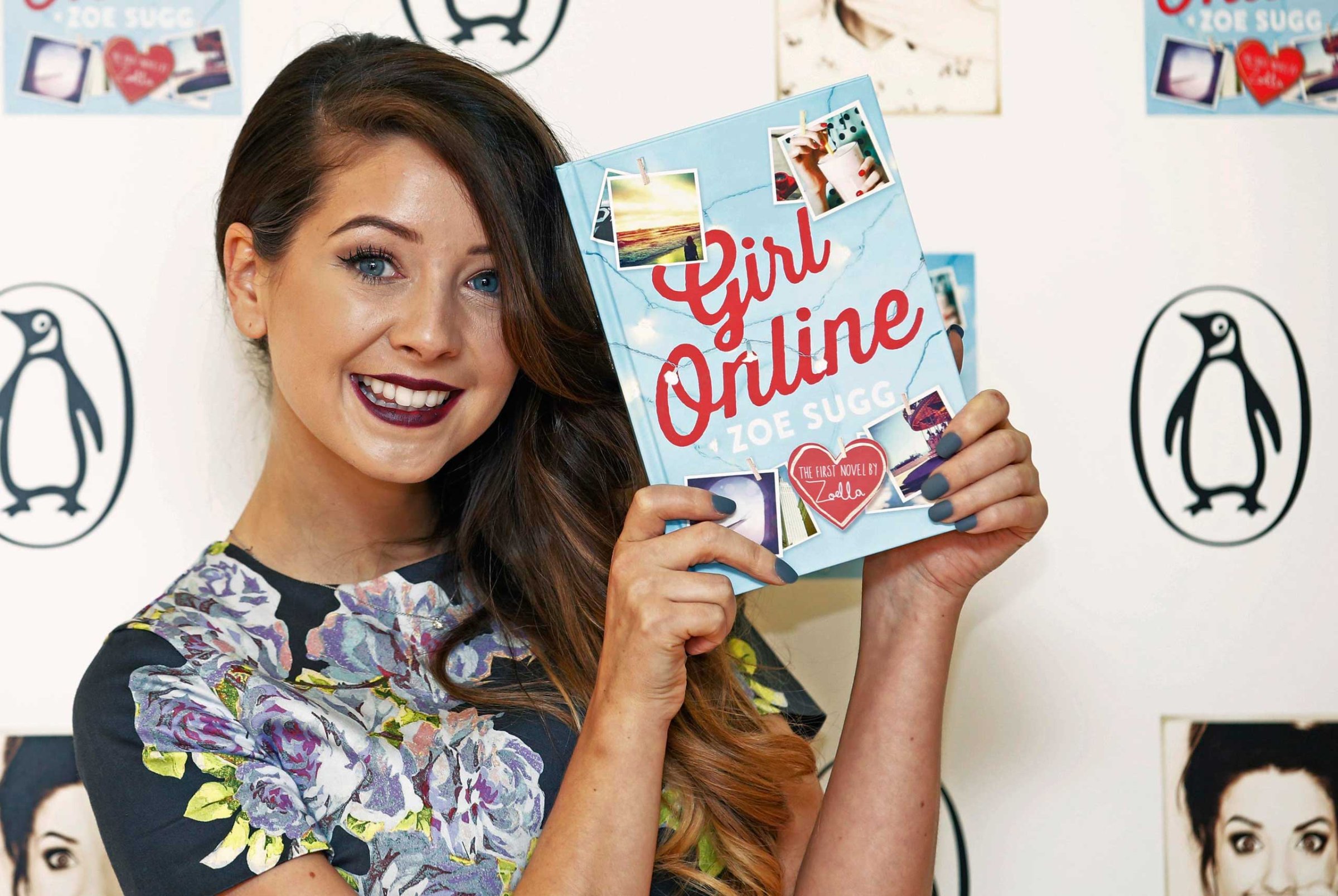
The author who has been described as the ghostwriter behind YouTube star Zoella’s New York Times best-selling young adult novel Girl Online said she had issues with the way the project was managed that she is barred from discussing.
The Sunday Times of London named British Young Adult writer Siobhan Curham as the likely ghostwriter of the book by Zoella, whose real name is Zoe Sugg. Curham, along with author and editorial director at Penguin U.K., Amy Alward, were mentioned in Sugg’s acknowledgements for Girl Online — but many people criticized Sugg for not explicitly crediting a ghostwriter.
On Monday, Girl Online‘s publisher Penguin told TIME in a statement that, “The factual accuracy of the matter is simply that Zoe Sugg did not write Girl Online on her own. For her first novel, Girl Online, Zoe has worked with an expert editorial team to help her bring to life her characters and experiences in a heartwarming and compelling story.”
Despite the online backlash that erupted against Sugg, Curham had stayed quiet on the controversy. But on Wednesday, Curham posted a defense of both herself and Sugg to her blog. Writing that she had signed on to help Sugg with the book not to become “famous” or “rich,” Curham said that she’d agreed because she loves writing and “helping others write books.” She did, however, note that it wasn’t an entirely enjoyable process, saying:
I did have some issues with how the project was managed. Issues which I expressed on more than one occasion. Issues which I’m afraid I’m not allowed to go into. And issues which have nothing to do with Zoe. I’ve seen at first hand how caring and considerate Zoe is. I’ve been very impressed with how she finds ways to use her (completely unexpected) fame to help others, whether that be through her vlogs, blogs, books or becoming a digital ambassador for the mental health charity MIND.
Curham also noted that she couldn’t reveal the precise nature of the work she did on the book, for “legal reasons,” though she did say, “Zoe Sugg chose to create a storyline that dealt with [issues such as cyber bullying, homophobia and anxiety] out of a desire to help her fans. And, when I was offered the opportunity to help Zoe, I also saw the opportunity to help get important and empowering messages across to her incredibly huge fan-base.”
And, perhaps proving that she really is a fan of the perpetually optimistic Sugg, Curham also found the bright spot in the whole ordeal. “By breaking sales records — because of Zoe’s humungous fan-base — book stores such as Waterstones are ending the year on healthy profits,” she writes. “Thousands of young people across the world have been tweeting excitedly about reading a book!”
More Must-Reads from TIME
- Cybersecurity Experts Are Sounding the Alarm on DOGE
- Meet the 2025 Women of the Year
- The Harsh Truth About Disability Inclusion
- Why Do More Young Adults Have Cancer?
- Colman Domingo Leads With Radical Love
- How to Get Better at Doing Things Alone
- Michelle Zauner Stares Down the Darkness
Contact us at letters@time.com